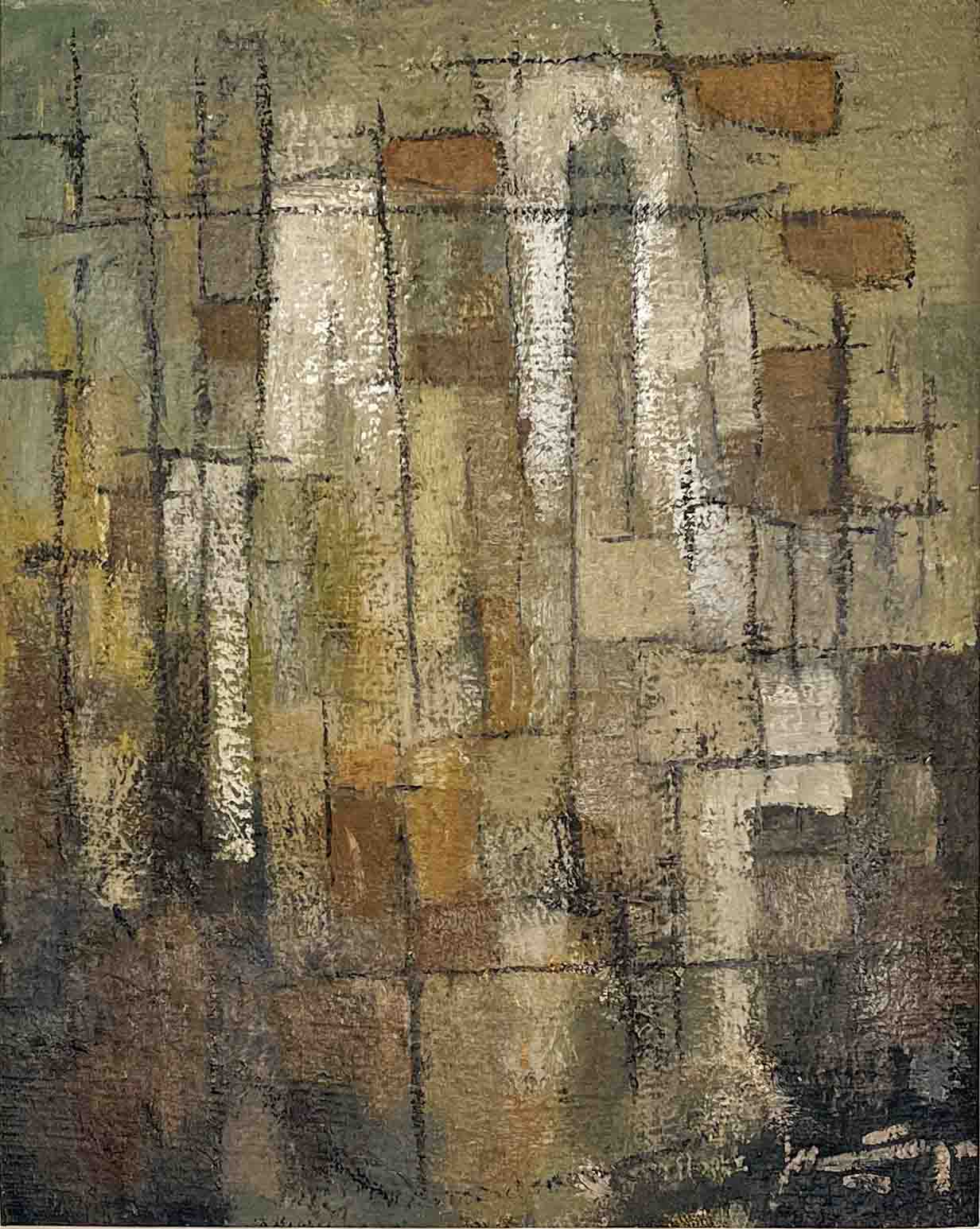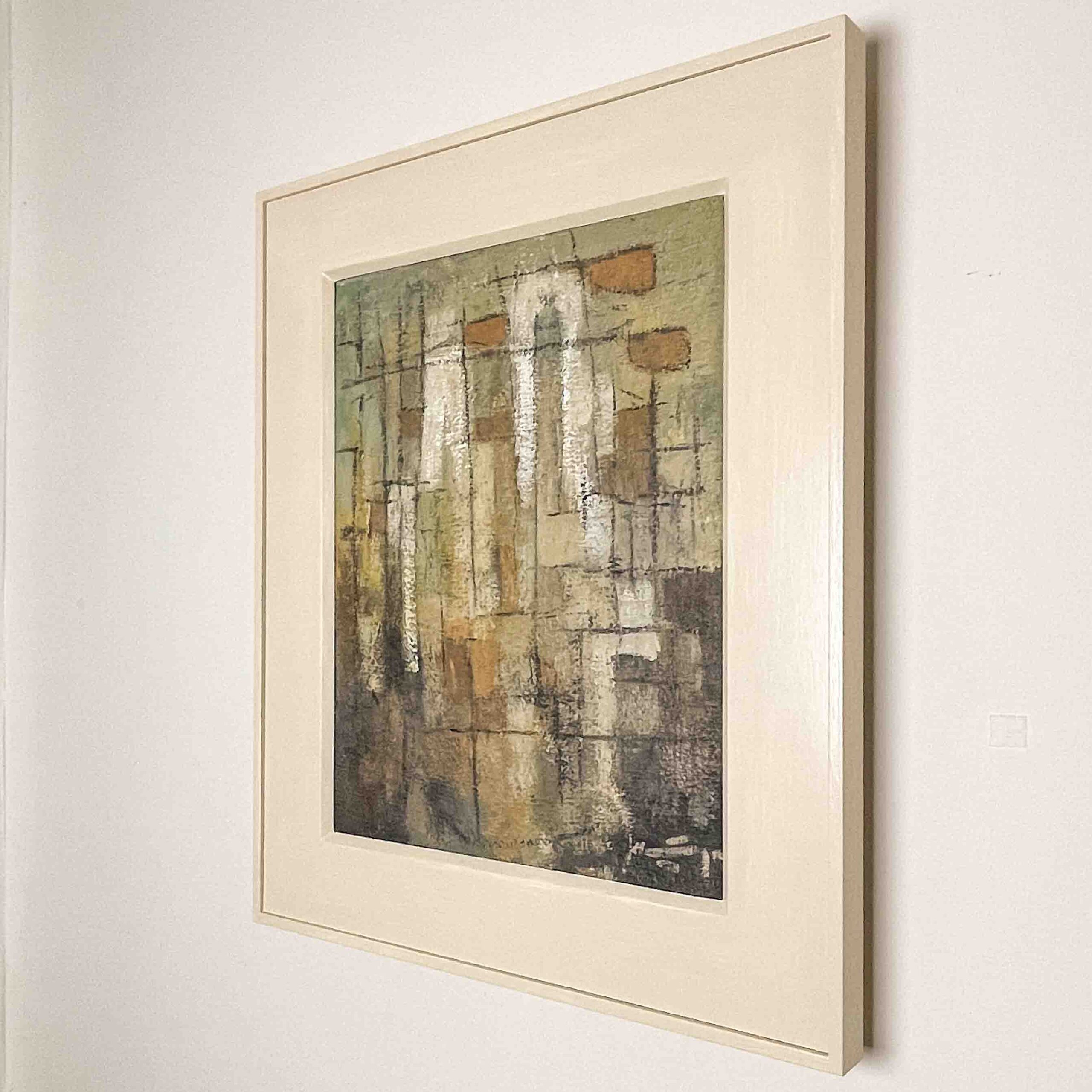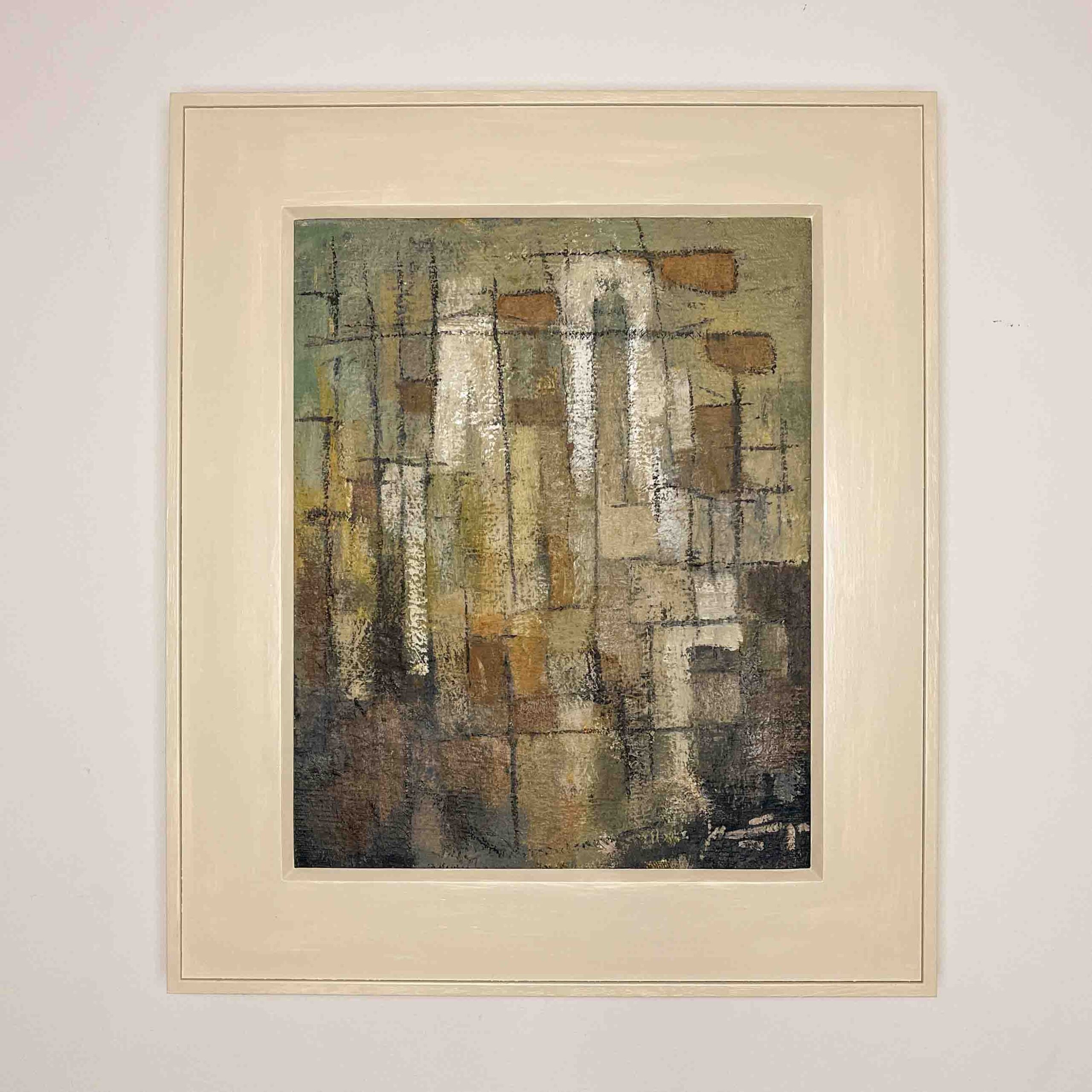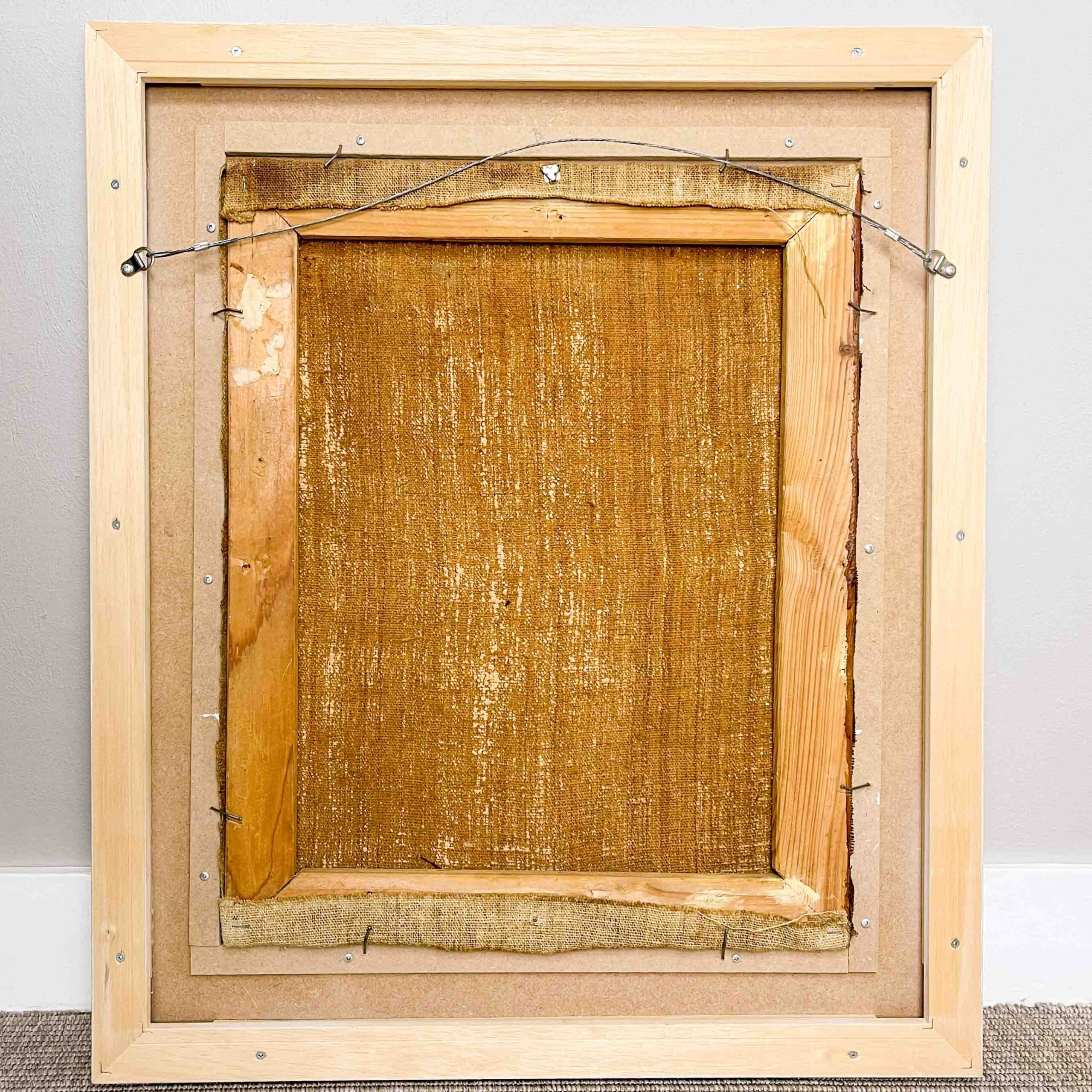Jaap Nanninga – Abstract Composition, 1953 – oil on canvas, framed




Jaap Nanninga – Abstract Composition, 1953 – oil on canvas, framed
An untitled original abstract oilpainting on canvas. Painted by the Dutch artist Jaap Nanninga. Signed by the artist, Professionally framed.
Price including VAT
Price upon requestAdd to cart
About Jaap Nanninga
Jaap Nanninga (Winschoten 1904 – The Hague 1962) was a Dutch painter known for his abstract-expressionist works. Nanninga began his artistic journey at a young age. He trained at the Rijksacademie van Beeldende Kunsten in Amsterdam, where he was influenced by the influential artists of his time.
In the early stages of his career, during the 1930s, Nanninga painted mainly figurative works, influenced by expressionism. However, after World War II, there was a remarkable shift in his style and approach to art. Nanninga evolved towards an abstract style, focusing on shapes, lines and colours to express his emotional expression.
After the war, Nanninga co-founded the Dutch Experimental Group, a movement that sought to break the boundaries of traditional art and provide space for experimental artistic expression. During this period, he developed his unique abstract-expressionist signature, using thick layers of paint, powerful brushstrokes and intense colours.
Jaap Nanninga’s art was soon recognised and appreciated both nationally and internationally. His work was exhibited in several solo and group exhibitions, including the famous Cobra movement. Cobra, an avant-garde artist group active from 1948 to 1951, embraced the experimental and spontaneous approach to art, and Nanninga shared their ideas and aesthetics for some time athough he turned down the invitation to join the group.
In the later years of his career, Nanninga regularly travelled abroad, including to France and the United States, where he was inspired by the international art scene. His paintings continued to evolve, with a constant emphasis on expression and experimentation.
Unfortunately, Jaap Nanninga’s life and art career came to an untimely end. He died on 15 July 1962 in his native Winschoten. Despite his relatively short life, he left a lasting impression on Dutch art history as a leading figure within the abstract-expressionist movement. His work is still appreciated and collected as an important part of Dutch post-war art. His work can be found in several public collections and museums, including: Art Museum, The Hague; Frans Halsmuseum, Haarlem; Van Abbe-museum, Eindhoven; Stedelijk Museum, Amsterdam and Museum Boijmans van Beuningen, Rotterdam.
Signed, titled and dated by the artist (front, bottom, right)

